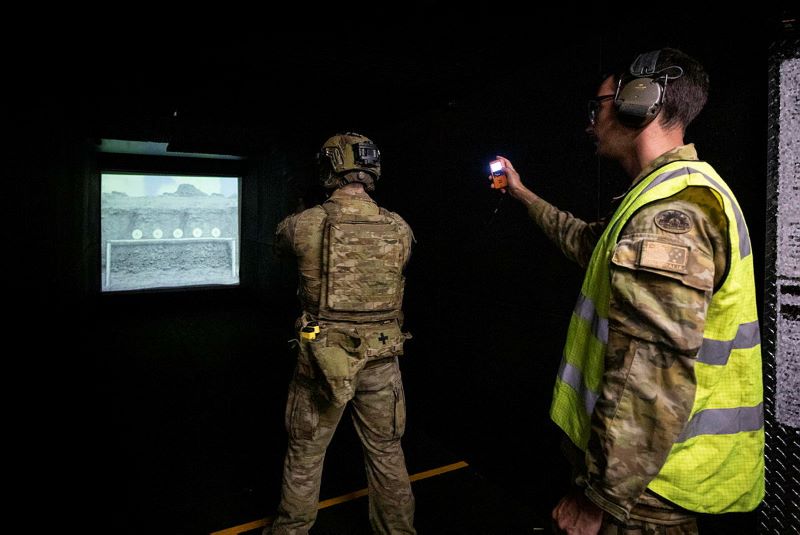
The Royal Australian Navy’s (RAN) Canberra-class landing helicopter dock (LHD) ship, HMAS Adelaide, has hosted a series of live-fire training for the Australian Army soldiers.
The training was conducted during the latest iteration of the country’s regional engagement activity Indo-Pacific Endeavour (IPE).
Personnel used the live-fire range-in-a-box (LFRiB) system deployed aboard the HMAS Adelaide for training.
This marks the first time LFRiB system has been deployed aboard a naval vessel, which represents a key innovation milestone for enhancing the Army’s readiness at the sea.
The new system was set in a modified shipping container placed on the flight deck of the RAN’s Canberra-class LHD.
It allowed the soldiers to undertake the training activity with live ammunition safely and effectively through a wide range of marksmanship serials, such as standard shoots and complex engagement tests.
The performed scenarios allowed the soldiers to test their quick thinking and judgement.
Participating soldiers were from 1st Battalion Royal Australian Regiment (1RAR) and 2nd Battalion Royal Australian Regiment (2RAR).
The exercise further aimed to hone the overall core combat skills, including weapons mastery and lethality, of the 2RAR and 1RAR soldiers.
Landing Forces commander colonel Doug Pashley said: “Our army personnel shoot every day now and practise their combat behaviours, which is really important for their readiness. Without it, their skills might degrade.
“You cannot replicate the shooting training, battle behaviours and combat behaviours they will get from doing that in the LFRiB.
“One of the things I’m most pleased about is that we can give our men and women the chance to keep their primary skills at a high level.”


